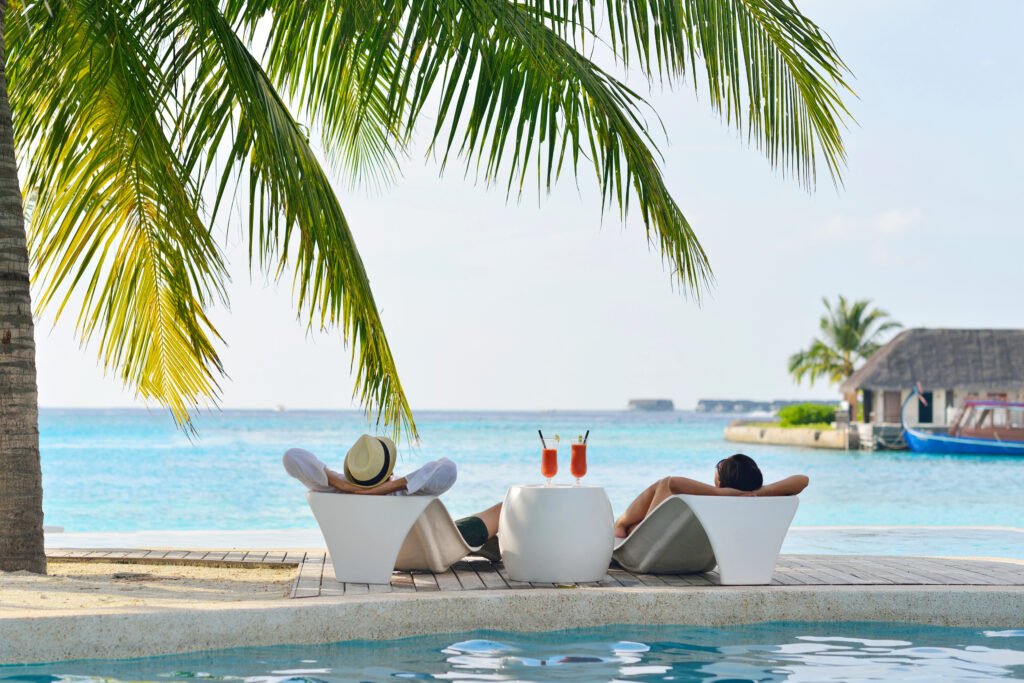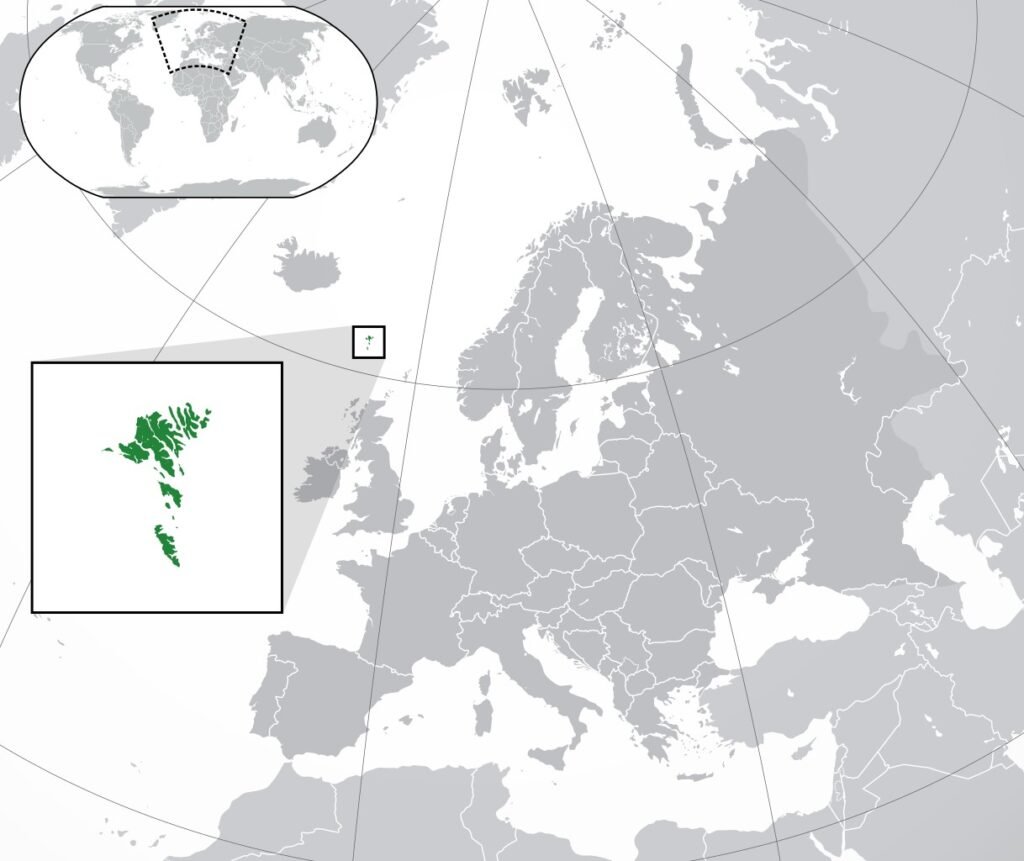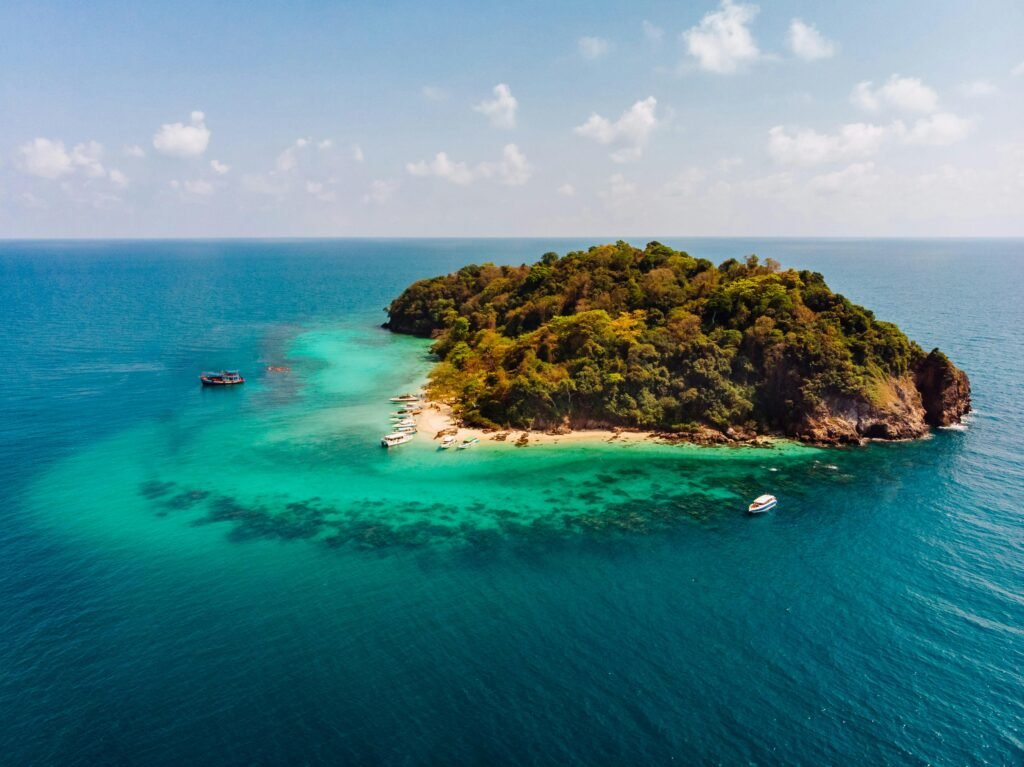Imagine the vibrant turquoise of a secluded lagoon, the gentle rhythm of waves lapping against a pristine shore, and lush greenery cascading down volcanic slopes. Hidden Islands possess an undeniable allure, drawing travelers in search of paradise. But these precious ecosystems often exist in a delicate balance. This is where sustainable travel practices for island visits become essential. By making conscious choices, we can protect these havens and ensure they thrive for future generations.
Sustainable travel is about minimizing our impact and maximizing the positive benefits for both the destination and its people. In the context of islands, this responsibility takes on even greater significance. Let’s dive into how you can be a responsible traveler and leave behind a legacy of positive change during your next island adventure.

Why Sustainable Travel Matters for Islands
Island paradises might seem infinitely bountiful with their allure of sun-kissed beaches and unique cultures. However, the reality is that they often face environmental challenges that tourism can exacerbate. Sustainable travel addresses these issues:
Limited Resources
Islands often have limited freshwater supplies, and their energy sources might rely on imported fuels. Tourism surges can strain these resources. Water conservation and energy efficiency are paramount for the sustainability of island life. Additionally, waste management can be a significant issue where space is limited and infrastructure needs to be developed.
- Freshwater:
Islands often rely on rainfall catchments, groundwater sources, or, in some cases, expensive desalination processes for freshwater. Tourism increases demand, especially with high-consumption activities like maintaining golf courses or resort pools. This strain can lead to water shortages for local populations.
- Energy:
Many islands depend on imported fossil fuels for power generation, leading to high costs and pollution. While some are transitioning to renewable sources, tourist surges can overwhelm capacity. This makes energy conservation particularly important for visitors.
- Waste Management:
Limited space for landfills and less robust recycling infrastructure are common island challenges. The influx of tourist-generated waste, especially non-biodegradable plastics, can further stress the system, potentially polluting land and marine environments.

Fragile Ecosystems
Islands are home to incredibly diverse yet delicate ecosystems. Coral reefs, crucial to marine life, are highly vulnerable to pollution and physical damage. Coastal areas are under threat from erosion and rising sea levels. Endemic species – plants and animals found nowhere else – face particular dangers if their habitats are disturbed. Responsible tourism minimizes adverse environmental impacts on these precious biodiversity hotspots.
- Coral Reefs:
These vibrant underwater ecosystems, essential for marine biodiversity, are susceptible to pollution, sedimentation, and physical damage from anchors or careless snorkelers. Chemicals in traditional sunscreens contribute to coral bleaching.
- Coastal Erosion:
Increased development and foot traffic can accelerate natural erosion, damaging beaches and sensitive dune systems. Rising sea levels pose an even more significant threat to coastal islands.
- Unique Biodiversity:
Islands are often hotspots of endemism – species found nowhere else on Earth. Their isolation makes these plants and animals particularly vulnerable to invasive species introduced by tourism or habitat loss caused by development.
Local Communities
Sustainable tourism also means respecting and enriching local communities. Thoughtful visitors can support local businesses, ensuring the economic benefits of travel flow directly to islanders. Furthermore, by engaging with cultural traditions respectfully, tourism can foster pride in local heritage and preservation efforts.
- Economic Benefits:
Tourism can be a vital economic lifeline for islands. However, profits can flow to external corporations rather than local communities if not managed thoughtfully. Sustainable tourism supports small businesses, local guides, and artisans, ensuring economic benefits are more widely distributed.
- Cultural Preservation:
Unregulated tourism can lead to the erosion of traditional ways of life or the commodification of cultural practices. Engaging respectfully with local cultures and supporting initiatives that preserve heritage contributes to keeping island communities vibrant.
- Avoiding Overcrowding:
Overtourism can strain local infrastructure and create tensions between residents and visitors. Sustainable practices emphasize quality over quantity, promoting slower travel and spreading visitation across less-frequented areas.
Before You Depart: Eco-Friendly Preparation
Planning is critical to a sustainable island getaway. These mindful choices make a difference before you even step foot on the sand:
Research Your Destination
- Go beyond the beautiful brochures. Learn about the island’s distinct environmental issues, be it water scarcity, coral reef protection, or endangered wildlife. Seek organizations working to address these challenges and be informed on cultural practices and ways to be a respectful visitor.
Pack Light and Smart
- The lighter your luggage, the lower the environmental impact of your transportation. Ditch single-use plastics and prioritize essentials. Bring a reusable water bottle, cutlery set, and tote bags to minimize waste. Choose reef-safe sunscreen – the chemicals in traditional sunscreens gravely harm coral reefs.
Support Sustainable Businesses
- Do your homework. Opt for tour operators with strong environmental ethics. Choose accommodations known for their green practices, whether solar energy, water conservation, or community engagement. When you make these choices, you send a clear message about the kind of tourism you support.
During Your Island Stay: Tread Lightly
Every choice you make during your island visit can make a positive impact. Here’s how you can become an eco-conscious traveler:
Conserve Water
- Island water resources are often precious. Take shorter showers, reuse towels if possible, and report any leaks or water wastage you see. Be mindful even when enjoying pools or water-based activities.
- Practical Tips: Take shorter showers, turn off the tap while brushing your teeth, reuse your towels and linens when the hotel offers this option, and be mindful when washing dishes if you have a kitchen.
- Why it Matters: Freshwater sources might rely on limited rainfall or energy-intensive processes like desalination. Your responsible water use eases the burden on the island’s resources.
Minimize Energy
- Turn off lights and air conditioning when you leave your room. Unplug devices when not in use, and embrace natural breezes whenever possible. These small actions collectively make a big difference.
- Why it Matters: Many islands still generate power using fossil fuels. Your conservation efforts reduce emissions and lessen the strain on their power grids.
Dispose of Waste Responsibly
- Always pack your trash if bins are unavailable, especially at beaches or nature sites. Utilize designated recycling bins whenever possible. Every piece of litter you prevent from polluting is a victory.
- Why it Matters: Limited landfill space and waste management facilities are significant island challenges. Your commitment to responsible disposal prevents pollution and protects marine life.
Respect Wildlife
- Admire animals from a safe distance, and never touch, feed, or chase them. Resist the temptation to purchase souvenirs from endangered species, such as tortoiseshell or coral. Observe creatures in their natural habitat and leave them undisturbed.
- Why it Matters: Island animals are part of a delicate ecosystem. Disturbing them can have ripple effects. Responsible observation lets wildlife thrive and avoids putting them at risk.
Support Local Economies
- Dine at family-run restaurants showcasing traditional cuisine. Shop at local markets for souvenirs and crafts. Choose locally-owned tour operators who prioritize environmental responsibility and community benefits.
- Why it Matters: Sustainable tourism helps generate income for local people, empowering small businesses and boosting the island economy.
Embrace Slow Travel
- Resist the urge to island-hop. Staying longer in one place allows you to connect more deeply, reduces your transportation impact, and spreads the benefits of tourism beyond the most popular spots.
- Why it Matters: Slow travel reduces the environmental impact of constant transportation. You’ll have a deeper connection to the place and its people while helping to alleviate the strains of over-tourism.
Choosing Sustainable Activities
Your choice of activities shapes your island experience and its impact. Here’s how you can prioritize sustainability:
Snorkeling and Diving
- Choosing Operators: Do your research! Look for operators who carry certifications like Green Fins or partner with marine conservation organizations. Check their websites for information about their environmental practices (e.g., no-touch policies, briefings on reef etiquette, reef-safe sunscreen use).
- During the Excursion: Strictly follow the “look but don’t touch” rule with corals and marine life. Maintain buoyancy control to avoid accidental damage. Resist the urge to collect shells or chase fish. Opt for smaller group tours for a lower impact on dive sites.
Water-Based Adventures
- Kayaking and Stand-up Paddleboarding offer unique ways to explore coastlines and mangroves with minimal impact. Choose calmer bays and respect wildlife habitats. If joining guided tours, inquire about their commitment to minimizing the disturbance of marine ecosystems.
- Sailing: Opting for wind-powered vessels is inherently sustainable. Smaller sailboats have less impact than large-scale cruises. Look for tours supporting marine conservation or focusing on educational experiences.
Explore on Foot or Bike
- Hiking: Stick to established trails to minimize erosion and avoid disturbing wildlife. Be prepared with proper footwear and supplies. Pack out all your trash and leave the natural area as unspoiled as you found it.
- Cycling: Stick to paved roads or designated bike paths whenever possible. Be mindful of pedestrians and local traffic. Renting from local shops directly contributes to the island’s economy. Carry a map or GPS to stay on track and avoid getting lost.
Immerse in Culture
- Museums and Heritage Sites: Opt for those run by local community organizations or those dedicated to preserving the island’s unique history and culture. These institutions often rely on visitors to support their conservation and education initiatives.
- Learning the Language: Even a few key phrases go a long way in showing respect. Look for simple language tutorials before your trip. This effort opens doors to more authentic interactions with locals.
- Supporting Ethical Artisans: Look for markets or shops that champion fair-trade practices, ensuring artisans directly benefit from their work. Research the origin of traditional crafts and avoid those made from endangered materials.
Giving Back While Traveling
Sustainable travel isn’t just about minimizing your footprint; it’s about positively impacting the destination. Here’s how to get involved:
Volunteer Opportunities
- Many islands have projects aimed at environmental restoration or community development. Seek beach cleanups, tree planting initiatives, or volunteer opportunities at animal sanctuaries. Dedicating even a few hours of your trip can make a tangible difference.
Choose Eco-Lodges or Homestays
- Support accommodations truly invested in sustainability. From rainwater harvesting systems to community partnerships, eco-lodges integrate responsible practices into their core. Homestays offer the chance to connect with local families while directly contributing to their livelihood.
Offset Your Footprint
- Even with our most mindful efforts, travel has some inherent environmental impact. Consider offsetting your carbon emissions by supporting accredited programs that invest in renewable energy projects, reforestation, or initiatives benefiting island communities.
Conclusion
Sustainable travel to islands is a choice to protect the treasures that make them unique. By making mindful decisions, we can ensure these captivating ecosystems and cultures continue to thrive. The ripple effects of responsible travel are far-reaching, from supporting local families to preserving biodiversity hotspots for future generations. Every action you take – big or small – leaves a footprint. Let’s ensure those footprints lead towards a more sustainable future for island communities and our planet.
FAQs
Q: Can I still enjoy an island vacation and be eco-friendly?
A: Absolutely! Sustainable travel is not about deprivation; it’s about making conscious choices that minimize impact and maximize the positive benefits for both destinations and travelers.
Q: How can I find sustainable accommodations on islands?
A: Look for certifications like Green Globe or EarthCheck—research hotel websites for their sustainability practices (renewable energy, water conservation, community support). Eco-lodge networks offer excellent options.
Q: Are there ways to give back to the island communities I visit?
A: Definitely! Volunteer opportunities might be found through your accommodation, local tourism offices, or reputable conservation organizations. Support local businesses, especially those run by women or marginalized communities.
Q: What small things can I do to be a more sustainable traveler on an island?
A: Pack light, reuse water bottles and towels, conserve energy, learn basic phrases in the local language, and be a respectful and curious visitor.
Q: Is sustainable travel more expensive?
A: Not necessarily. Supporting local businesses, choosing eco-friendly accommodations, and embracing slower travel can be budget-friendly, allowing you to connect more deeply with the destination.


